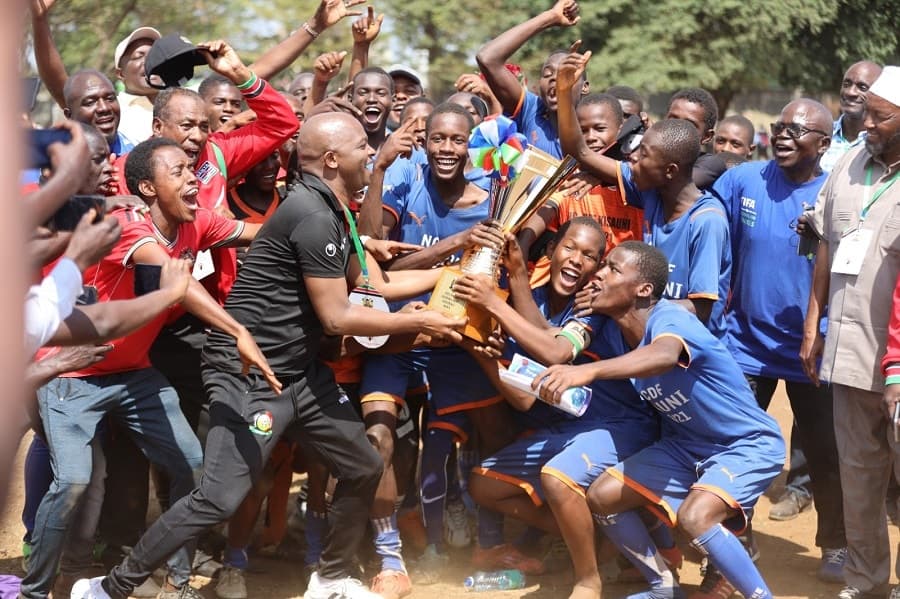We're loading the full news article for you. This includes the article content, images, author information, and related articles.
The Football Kenya Federation (FKF) is emphasising the critical need to strengthen grassroots football development across Kenya to build a sustainable pipeline for national talent and improve the sport's overall standards.

In a move aimed at revitalising Kenyan football from its foundational levels, the Football Kenya Federation (FKF) is championing a renewed focus on grassroots development. This initiative seeks to create a robust system for identifying, nurturing, and tracking young talent, ultimately feeding into national teams and professional clubs. The emphasis on grassroots football is a critical component of the FKF's broader strategy to professionalise the sport and align it with international standards, addressing historical issues of inconsistent development and inadequate infrastructure.
The FKF recently concluded a three-day working visit with FIFA Talent Development Scheme (TDS) expert Mr. Faisal Abdul Chibsah, held in Nairobi from Monday, October 13, to Wednesday, October 15, 2025. The visit focused on reviewing and aligning Kenya's player development pathways. This engagement underscores the federation's commitment to enhancing the quality of coaching and training at all levels. Furthermore, on Saturday, February 15, 2025, FKF President Hussein Mohammed met with branch representatives to discuss strategies for advancing grassroots football, including restructuring county and regional leagues and exploring strategic partnerships.
In a significant step towards improving infrastructure, President William Ruto, on Friday, August 30, 2025, handed FIFA President Gianni Infantino the deeds to land in Machakos for the construction of a new national technical centre. This USD 4.6 million (approximately KES 600 million) FIFA Forward-funded project will feature natural and artificial turf pitches, an administration building, and conference facilities, serving as a hub for national teams and a beacon for future footballers.
Kenyan football has a history marred by governance challenges, mismanagement, and political interference, often hindering its progress on regional, continental, and global stages. The Football Kenya Association was registered in 1946, and while sports gained full ministerial status in 2003, consistent policy implementation has remained a hurdle. In 2021, the FKF faced a FIFA ban due to controversies surrounding fraud and misappropriation of funds, which was eventually lifted in 2022 following intervention by Sports Cabinet Secretary Ababu Namwamba and a commitment to reforms.
The review of Kenya's Sports Policy (2002) and Sports Act (2013) commenced in January 2024, with expected changes by July 2024 for parliamentary discussion. These revisions aim to clarify roles between government agencies, introduce measures against doping and regulate sports betting, and improve governance structures within sports federations to curb incessant wrangles. The FKF, as the official governing body, oversees national teams, leagues, and grassroots development for both men's and women's football.
FKF President Hussein Mohammed has consistently highlighted the urgent need to move beyond mere talent identification to comprehensive nurturing and tracking of young players. He emphasised that schools are brimming with talent, but without a clear system, many promising players are lost. This sentiment is echoed by former players and analysts who welcome the FKF's restructuring plans as a long-overdue step towards aligning Kenyan football with international standards.
Despite increased funding and strategic plans, challenges persist. Poor infrastructure, limited access to proper coaching and facilities, and inadequate funding continue to hinder grassroots development. The overreliance on aging players and a lack of structured youth development programs are significant concerns. Furthermore, poor marketing of local leagues contributes to low fan attendance, impacting revenue and overall growth.
While the FKF has unveiled ambitious plans, the successful implementation of these strategies requires careful coordination with clubs, counties, and other stakeholders. The transfer of documents from Machakos County for the technical centre, for instance, was still pending as of April 2024. Ensuring transparency and accountability in the utilisation of funds, particularly from FIFA, remains crucial given past controversies.
The successful construction and operationalisation of the national technical centre in Machakos will be a key indicator of progress. The implementation of the FKF's restructuring plan for the Kenyan Premier League and lower divisions, alongside sustained efforts in youth development and coach training, will be critical. Additionally, the revised Sports Policy and Act, once enacted, are expected to provide a clearer regulatory framework for football development in Kenya.
Keep the conversation in one place—threads here stay linked to the story and in the forums.
Sign in to start a discussion
Start a conversation about this story and keep it linked here.
Other hot threads
E-sports and Gaming Community in Kenya
Active 9 months ago
The Role of Technology in Modern Agriculture (AgriTech)
Active 9 months ago
Popular Recreational Activities Across Counties
Active 9 months ago
Investing in Youth Sports Development Programs
Active 9 months ago